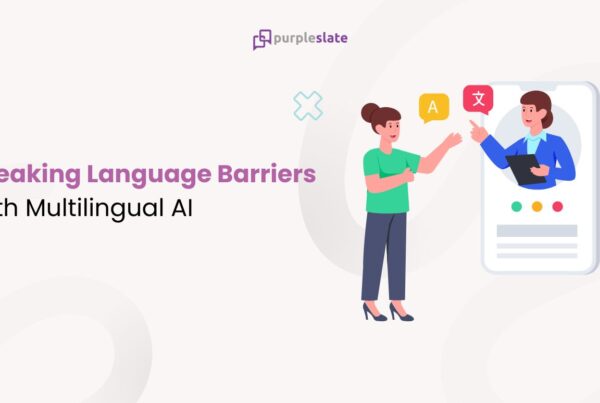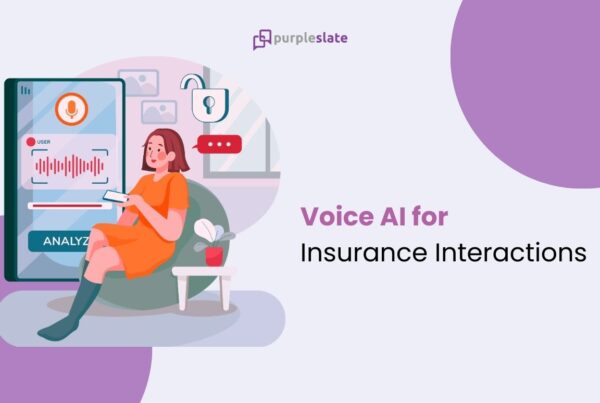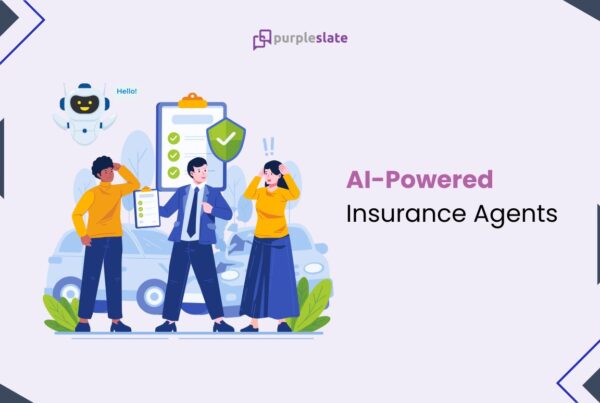
Introduction
In an era where convenience and immediacy define consumer expectations, the insurance industry is undergoing a seismic shift. Enter InsurTech—an innovative frontier where technology meets insurance to redefine customer engagement. Imagine a world where your insurance provider is available 24/7, not just to answer queries but to understand your needs and offer personalized solutions. Welcome to the future of insurance customer service, where chatbots and virtual assistants are transforming the way we interact with our insurers.
The InsurTech Evolution: A New Era of Customer Engagement
The insurance industry has historically faced challenges with customer service, often characterized by lengthy procedures and impersonal interactions. However, InsurTech is revolutionizing this landscape by integrating advanced technologies that promise to enhance the customer experience. The focus is on creating a more responsive, personalized, and efficient service model that meets the demands of today’s digital-savvy consumers.
Chatbots: The Game-Changer in Routine Interactions
Chatbots represent one of the earliest and most significant advancements in digital customer engagement. These AI-driven tools are designed to handle routine queries and tasks with remarkable efficiency. In the insurance sector, chatbots can assist with a variety of functions including:
- Policy Inquiries: Customers can get instant answers about their insurance policies, coverage details, and renewal dates.
- Claims Assistance: Chatbots can guide users through the claims process, helping them submit claims and track their status.
- General Support: For routine questions and issues, chatbots provide immediate responses, reducing wait times and improving customer satisfaction.
The benefits of chatbots are substantial. They offer a 24/7 presence, which is particularly valuable for customers needing assistance outside of regular business hours. By handling repetitive and straightforward tasks, chatbots free up human agents to focus on more complex and nuanced customer needs. This efficiency not only enhances the customer experience but also streamlines insurance operations.
Virtual Assistants: Beyond Basic Interactions
While chatbots are effective for routine tasks, virtual assistants represent a more advanced level of digital engagement. These AI-powered tools leverage sophisticated natural language processing (NLP) to understand and respond to complex queries. In the insurance industry, virtual assistants can perform a range of functions, including:
- Personalized Policy Management: Virtual assistants can analyze customer data to offer tailored recommendations and updates about their insurance policies.
- Complex Claims Processing: They can assist with more intricate aspects of claims processing, providing detailed guidance and support.
- Proactive Assistance: By analyzing historical interactions and customer behavior, virtual assistants can anticipate needs and offer proactive solutions.
Virtual assistants create a more conversational and human-like interaction, enhancing the overall customer experience. Their ability to remember past interactions and offer personalized advice makes them a valuable asset in the InsurTech sector.
Integrating Voice and Text: Enhancing User Experience
One of the key advantages of modern Conversational AI Solutions is its ability to seamlessly integrate both voice and text interfaces. This versatility caters to different user preferences and scenarios:
- Voice Interfaces: Ideal for hands-free interaction, voice interfaces enable users to manage their insurance needs through simple spoken commands. This is particularly useful for users on the go or those who prefer voice communication.
- Text Interfaces: Text-based interactions provide a written record, which can be useful for detailed inquiries and support. Text interfaces also allow for asynchronous communication, where users can engage with the system at their convenience.
The ability to switch between voice and text interfaces ensures a more flexible and inclusive user experience, accommodating various preferences and contexts.
Challenges and Solutions in Adopting AI in Insurance
Despite the many advantages, implementing AI technologies like chatbots and virtual assistants in the insurance sector comes with its own set of challenges:
- Data Security and Privacy: Handling sensitive personal information requires strict adherence to data protection regulations. Ensuring robust security measures and compliance with industry standards is essential.
- Integration with Existing Systems: Integrating new AI technologies with legacy systems can be complex. InsurTech companies must plan and execute their AI strategies carefully to avoid disruptions in service and ensure smooth transitions.
Addressing these challenges involves careful planning, investment in security measures, and a phased approach to integration. The rewards, however, are significant, with the potential to enhance customer satisfaction and operational efficiency.
The Future of Digital Customer Engagement in InsurTech
Looking ahead, the future of digital customer engagement in the insurance industry holds exciting possibilities. Advances in AI technology, such as more sophisticated NLP and machine learning algorithms, will continue to enhance the capabilities of chatbots and virtual assistants. The goal is to create an even more seamless and intuitive interaction where technology supports and enhances human communication.
Emerging trends such as predictive analytics, which can anticipate customer needs based on data patterns, and advanced AI-driven personalization will further transform the InsurTech landscape. The vision is to move beyond mere automation to create a truly interactive and engaging customer experience.
Conclusion: Embracing the Digital Transformation
The integration of digital tools like chatbots and virtual assistants is revolutionizing customer engagement in the insurance industry. By embracing these technologies, InsurTech companies are not only improving service efficiency but also setting new standards for customer satisfaction. The evolution from basic chatbots to advanced virtual assistants represents a significant leap forward in creating a more personalized, responsive, and efficient insurance experience.
As the industry continues to innovate, the future promises even more advanced solutions that will further enhance the customer journey. For insurers ready to adapt and embrace these changes, the potential benefits are immense.




